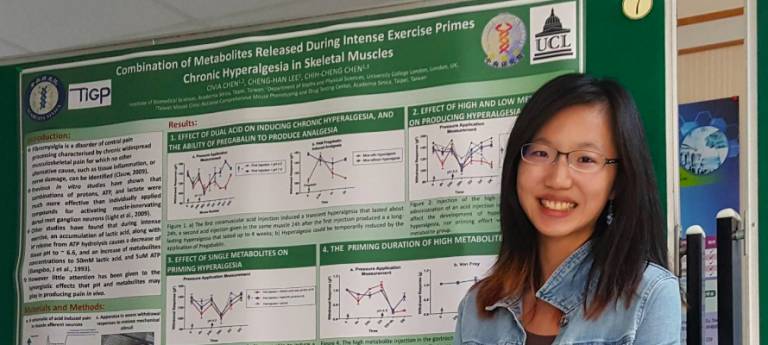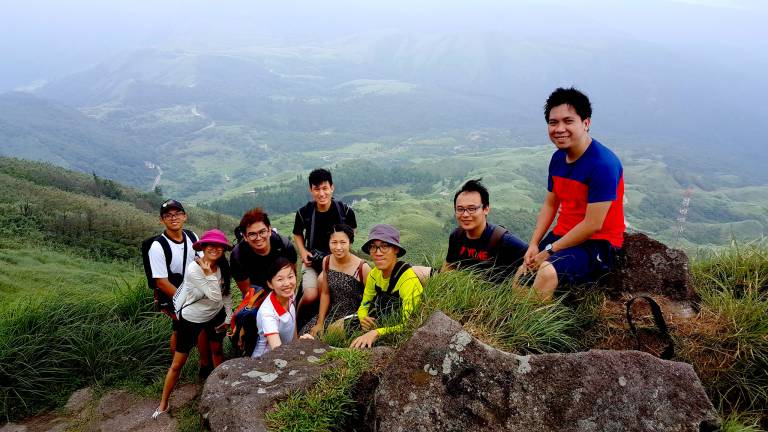Institute of Biomedical Sciences, Academic Sinica
14 March 2019
Natural Sciences student Civia Chen joined a laboratory at Academic Sinica in Taiwan in order to obtain further laboratory experience before the start of her final year.

This summer I spent two months at the Institute of Biomedical Sciences at Academia Sinica in Taiwan. For the most part, I worked in a molecular nociception lab studying chronic pain in animal models. My typical day would entail setting up and running my own behavioural experiments, and attending lectures given by PIs from different neuroscience labs. These lectures covered the latest research techniques, and hot topics in neuroscience. If I had spare time, I would shadow other lab members, or try my hand at molecular bench work, to which I had zero prior experience. All together, these two months which centered very heavily on biological laboratory work, helped me to better understand the flow of logic that underpins experimental design and data analysis. It also helped me better visualize how data is obtained, and how they all fit into a bigger picture to explain a phenomenon.

My biggest challenge was having to learn, or at the very least remember, everything the first time they were said. There was more of an expectation to be independent, and to do things right the very first time. This is different from university wet labs; if we had questions we could ask any of the professors or teaching assistants who were never too far away. Whereas at the Academia Sinica, everyone in the lab was incredibly busy with their own experiments, so if I wasn’t clear on anything I could be waiting an afternoon before someone was free for me to ask. I noted this difference very early on, so I learned to take very good notes, and to identify the most important, core concept in a conversation. Indeed, I often needed to do more reading on my own, but I found that once I understood the core concept I could flesh out everything else on my own.
This experience fits in perfectly with my UCL degree and my career aspirations. While studying abroad in Canada I spent a year doing pain research in a lab alongside my studies. I didn’t initially have much interest in laboratory work, but surprisingly I came to really love pain research. I wanted to diversify what I had previously completed at McGill, so I applied to a two month programme doing nothing but pain research and pain studies at the Academia Sinica. Coincidentally, my Master’s project is also in molecular nociception, so undoubtedly the skills, insight and enthusiasm I have developed will allow me to hit the ground running in a field of research I fell in love with whilst abroad.
I really enjoyed the programme, and Taiwan is absolutely amazing! I would be in the lab all week and then I would travel all over Northern Taiwan during the weekend. Taipei is an incredibly busy city, but it is so easy to just hop onto a train to escape to a gorgeous, historic town, or to the peak of one of its many mountains. Not a single day came to waste!
I cannot recommend studying abroad enough! My lab mates were so wonderfully supportive. I learnt so much in such a short space of time, about pain research, and about myself. I loved every single moment! The lab work, the people, the travelling! One of my best summers by far!
 Close
Close

